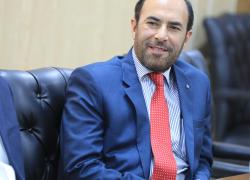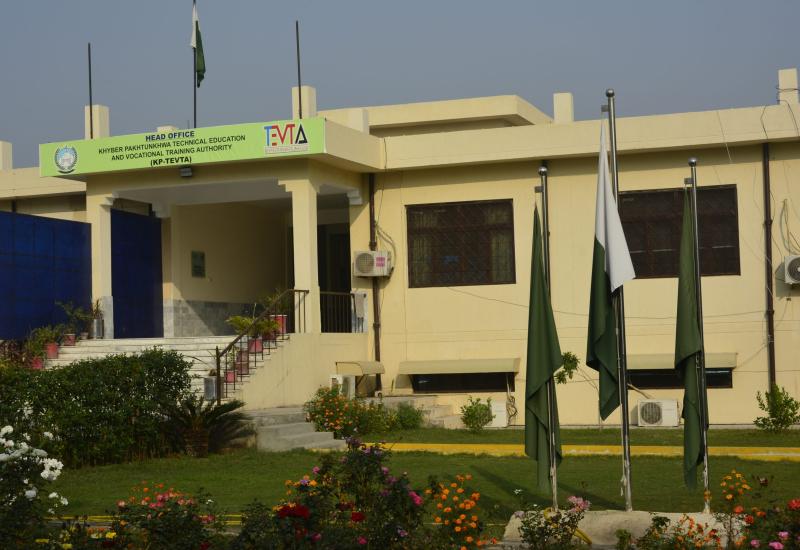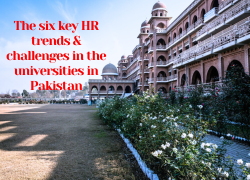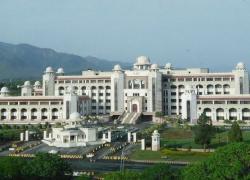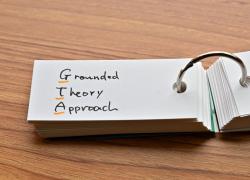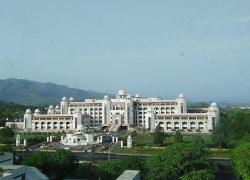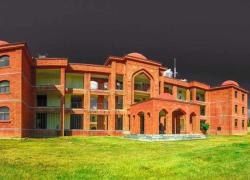The art of conducting a job interview: Is it science or rocket science?
During a recent interview for the position of an HR officer, I was attending in the capacity of the Head of the Department, one of the members of the interview panel tried to persuade other panelists to select a candidate who was a professional musician though he was quite an average, mediocre sort of guy for the HR position. The member of the panel, in his own right, desired to add some fun to the boring working environment of the organization. Nevertheless, as the head of the department, I vehemently opposed the idea. The reason was simple. The organization was planning to set up a newfangled HR Department along modern lines, for which the services of an experienced, motivated and extremely skilled HR professional were required. Though, his thinking was both noble and novel but not objective.
In an another interesting but distasteful episode, I came across the proceedings of a job interview where a member of the interview panel started arguing with a candidate openly, screwing him brazenly and decrying him blatantly during a live interview session, professing that he (the panel member) was not going to select him for the reason that he (the candidate) quit a previous job in the organization, very recently, where the said panel member was holding an important position and resultantly his (the panel member) organization suffered. The member of the panel felt justified, in his own right, but was obviously oblivion of his role and limitations.
Another bizarre instance of a bad interviewing- a member of the interview panel sought information about a prospective candidate to verify whether he ( the candidate) took Study Leave and NOC from his parent organization for completing the required level of qualification mandatory for the advertised position and stood eligible. Though the panel member was adding extra efforts to his role in a naively innocent manner but he was profoundly ignorant of the fact that asking for such information, at this stage of the recruitment process, was falling evidently outside his purview and hence, he traversed his domain with impunity.
These few mishaps took place very recently, compelled me to take up these issues in this article, though, I was thinking for long to share my personal experiences on the subject matter but could not do so for the lack of intrinsic motivation. Here, the sole aim is to sensitise the people at the helm of affairs and those who matter the most to address such an embarrassing situation before it arises in the future.
Setting the stage
The point of a job interview is to make sure that the candidate has the necessary knowledge, skills and ability to do the job effectively and add value to the organization. This is, plain and simple. Nevertheless, ‘right person for the right job’ provides the guiding principle for any such crucial undertaking.
An HR Director of a topnotch UK university during a training session enunciated that one fine morning, a Technician working in one of the Research Centers in his university divulged that he was going to participate in the National Games as a professional Athlete. The HR Director’s pleasant surprise was palpable when the Technician further added that had he revealed this set of skills during his interview for the position of the Technician, the interview panel would have never selected him.
What to look for?
Indeed, it has always been tricky to determine, what the candidate actually knows what he says, he knows. Over the years, I have been involved in the process of interviewing, in multiple capacities, first as a candidate, then as an organizer and lately as a member of the interview panel. Getting it wrong has always been very expensive. What I experienced is that the job interview used to suffer from a variety of lacunae. Some of these are just taken up by this article.
Lack of proper training
As a matter of fact, the members of the interview panel used to be not properly trained for the job in our context. In the five different organizations, I worked for the last fifteen years, I did not come across any interview panel that was formally trained for the task on hand. No guiding principles were outlined and shared with the members of the panel. Nothing was made available, even for the guidance of the head of the panel- how to begin with, how to conclude, what to ask, what to avoid, how to manage dissenting views and how to finish with it, in a timely manner. For the most part, it used to be self-learning.
Lack of pre-meeting discussion
By and large, interviewees did not know how to proceed with the interview session as no pre-meeting of the interview panel used to be held to discuss basic modalities and prepare for the interview procedure, including proposed questions to be asked and allocation of roles and responsibilities for the day of the interview except a brief introduction of the panel and small talk before the interview session began.
Lack of proper preparation
The members of the selection panel, most of the time, used to be not properly prepared for the job as they were involved, at a very belated stage. They were not always provided with sufficient information about the profiles of the candidates. Besides, they had little or in some cases, absolutely, no knowledge of the selection instrument utilized and more often lack necessary interviewing skills.
Lacking objectivity
What I experienced, generally speaking, the job interviews tend to be lacking objectivity for being very superficial, unrealistic and airy-fairy. Majority of the interviews did not assess each candidate’s proficiency, knowledge and essential skills with regard to the advertised position and candidate personal specification. Sometimes, very irrelevant questions were asked from the candidates during the session. I can personally recall numerous instances where the interviewees asked me to recite, “Dua-e-Qunoot” and “Namaz-e-Janaza, the logic of asking such extraneous questions for the managerial positions, I could not understand even today.
Lacking consistency
Apart from this, there happened to be a serious lack of consistency for the absence of a standard, unified and agreed upon interview structure, while posing interview questions. Consistency in approach, while posing interview questions, had always been grossly missing so that all applicants were subjected to more or less the same treatment during the course of the interview phase. There were no policy guidelines for the purpose in any of the public sector organizations, I worked for. Hence, the final selection phase was found not only to be utterly flawed but was open to scathing criticism leading to never-ending litigations.
Who is finally selected?
Even, if it was all transparent, open and merit-based, only that candidate is eventually selected who performed well on the day of the interview, not the best fit for the position. I personally bear witness to scores of candidates who did well on the day of the interview but performed miserably poor when it came to the actual delivery of work and practical demonstration of the knowledge, skills and ability. This might be due to the fact that either the panel was carried away by the excellent presentation skills of a particular candidate or the other candidates in the run were also not up to the mark.
An offshoot
As an offshoot of bad interviewing, a misfit candidate is selected, which costs the organization, a great deal. This earns a bad name for the management, as well as, for the overall organization. I received feedback from the scores of candidates talking bad about the organizations for having a very bad experience of the interview there. For being expensive, time-consuming and complicated most of the organizations do not maximize the value of interviewing. However, if used intelligently, this technique might turn out to be a good predictor of work performance in the organizations.
Recommendations
The critical part of any valid, reliable and efficient interview involves asking past behaviour questions. The key lesson here is that the best predictor of future behaviour is past behaviour and past performance in a similar situation. It is essential to pose questions that cover, how the candidate exhibited his/her skills to play a similar role, successfully, in the past. Keep asking ‘how and why’ repeatedly. Allow the candidate to feel at ease and speak his mind. There should be two sets of interviewees in a panel. One should ask questions and the other should listen, evaluate and ask follow-up questions if required.
It is also advisable that many people should not be included in the panel and they should be properly trained for the job. Research suggests, interviewing that is not behaviourally-oriented does not align with best practices and is not considered as an effective and consistent method of predicting future work performance. The interview panel should make a fair and unbiased assessment of the candidates’ suitability, knowledge, skills and competencies for a particular job, in line with advertised position and job description. The principals of objectivity and consistency should be adopted and maintained while asking questions and all the candidates should be subjected to more or less similar treatment during the interview in order to avoid discrimination.


